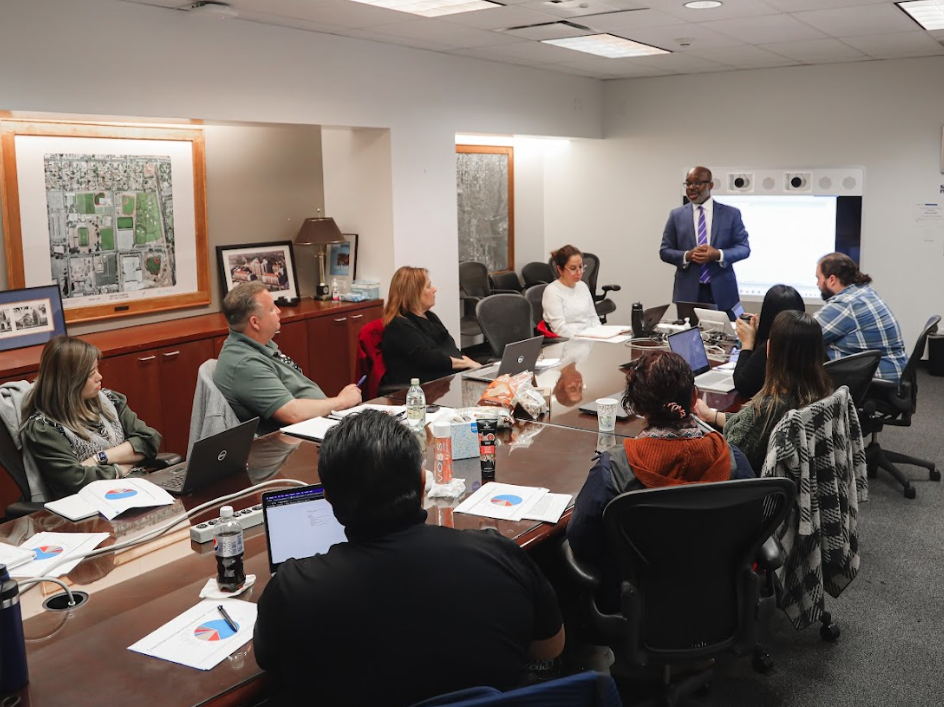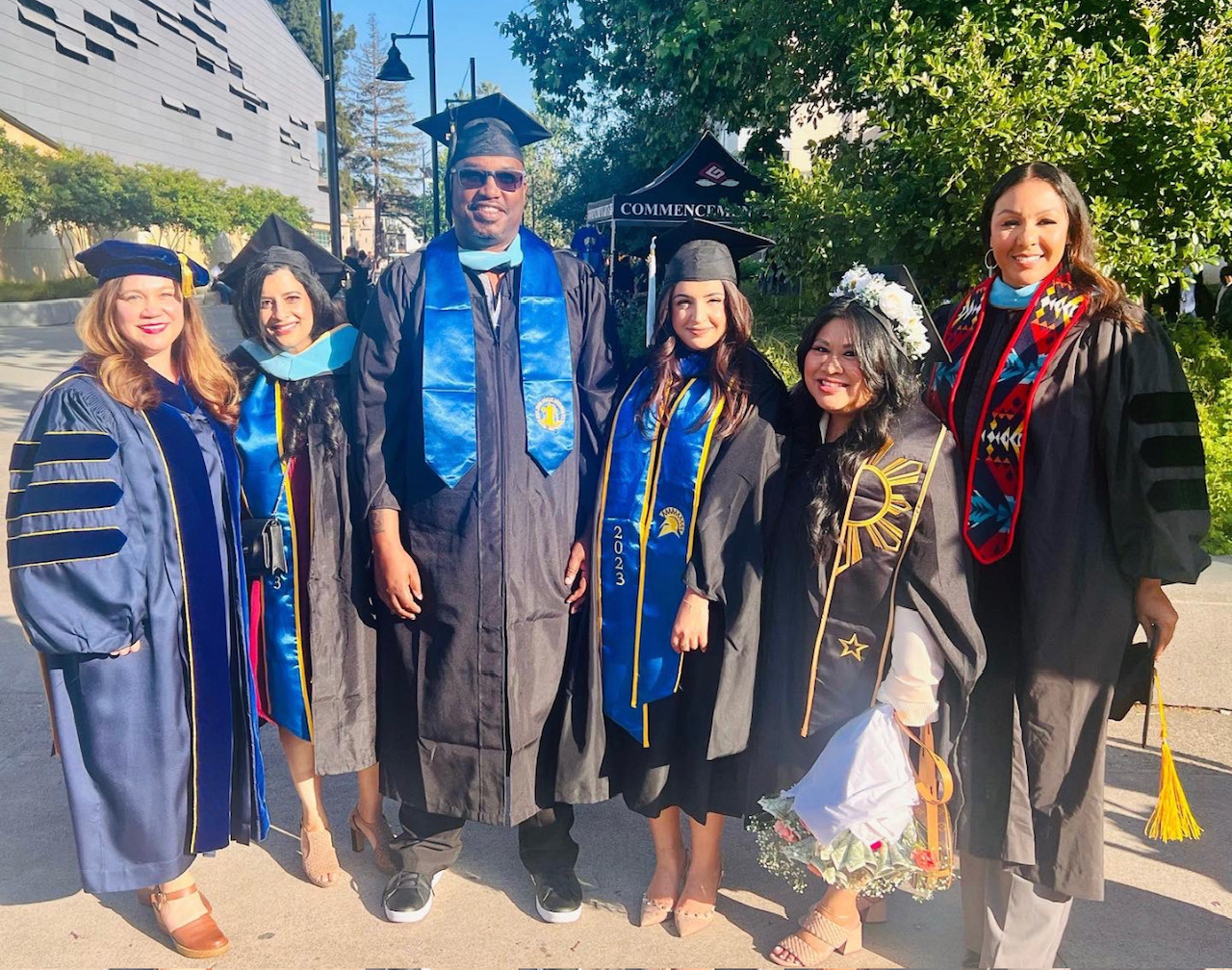Learn and study what education could be. Work to identify and dismantle systems of oppression within K-12 and higher education to build a more just and equitable future. Our graduate degree programs are delivered using a hybrid model that maximizes collaboration while prioritizing flexibility. As leading practitioners and scholars, our faculty are committed to offering hands-on support and mentorship to the next generation of emancipatory education leaders and academics.
Spartan Grad Student Paves the Way for Free Community College Tuition


